Indigenous Governance Database
Laws and Codes
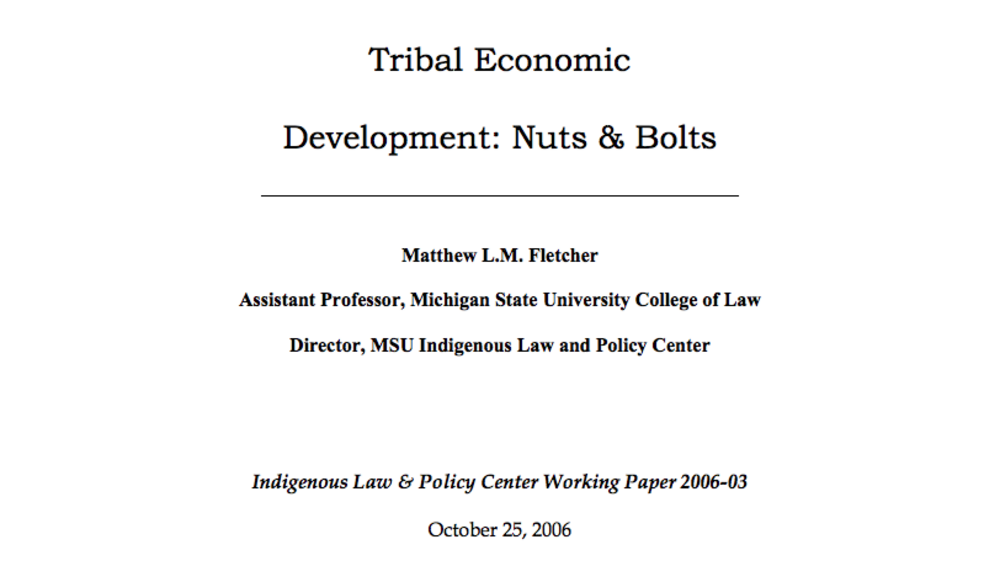
Tribal Economic Development: Nuts & Bolts
Tribal economic development is a product of the need for Indian tribes to generate revenue in order to pay for the provision of governmental services. Unlike the federal government or states, Indian tribes – in general – have no viable tax base from which to generate revenues sufficient to…
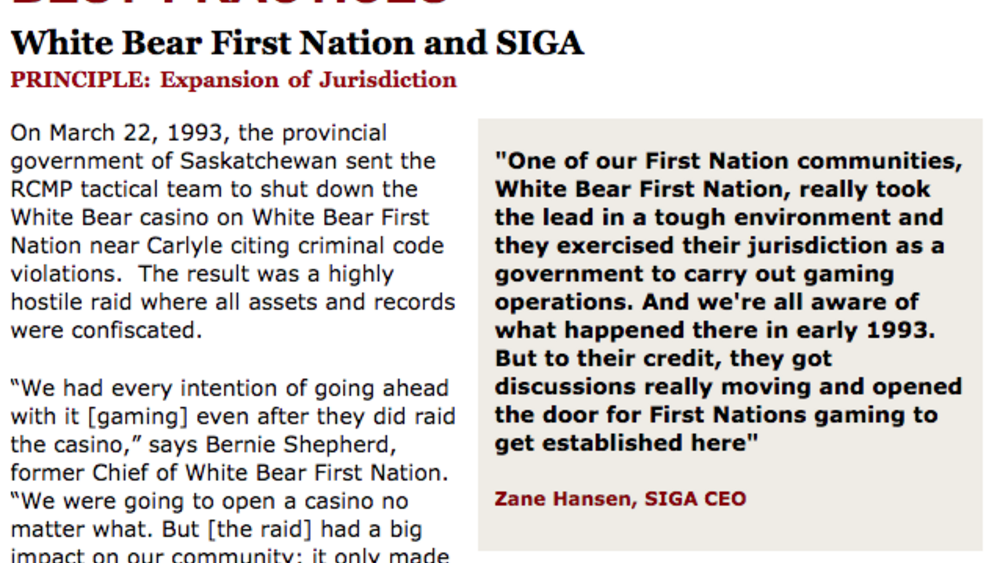
Best Practices Case Study (Expansion of Jurisdiction): White Bear First Nation and SIGA
On March 22, 1993, the provincial government of Saskatchewan sent the RCMP tactical team to shut down the White Bear casino on White Bear First Nation near Carlyle citing criminal code violations. The result was a highly hostile raid where all assets and records were confiscated. "We had every…
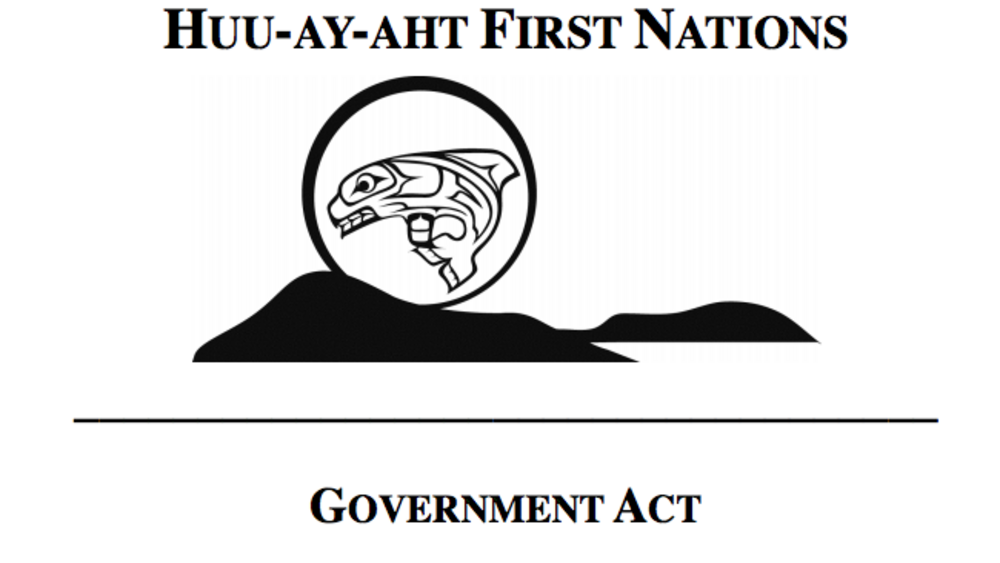
Huu-ay-aht First Nations Government Act
The Government Act sets out the legal framework for the Huu-ay-aht government which includes the following branches: the Legislature, Executive Council, the Ha’wiih Council, and the People’s Assembly.
![Tribal Law as Indigenous Social Reality and Separate Consciousness: [Re]Incorporating Customs and Traditions into Tribal Law Tribal Law as Indigenous Social Reality and Separate Consciousness: [Re]Incorporating Customs and Traditions into Tribal Law](/sites/default/files/styles/resources/public/resources/Screen%2520Shot%25202016-10-11%2520at%25201.22.13%2520PM.png?itok=pvkjKhR1)
Tribal Law as Indigenous Social Reality and Separate Consciousness: [Re]Incorporating Customs and Traditions into Tribal Law
At some point in my legal career, I recall becoming increasingly uncomfortable with the inconsistencies between the values in the written law of various indigenous nations and the values I knew were embedded in indigenous societies themselves. The two are not entirely in harmony, and in fact, in…
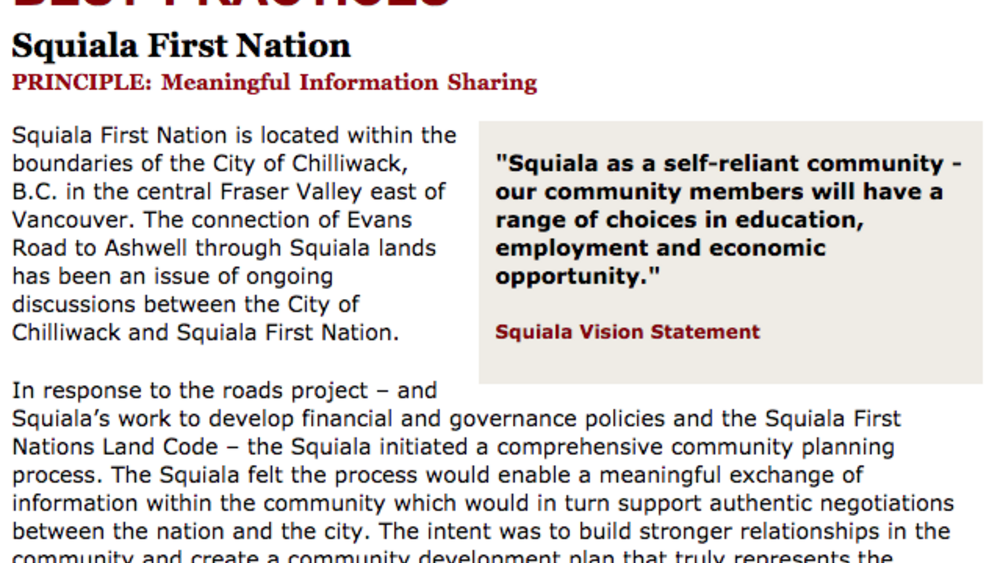
Best Practices Case Study (Meaningful Information Sharing): Squiala First Nation
Squiala First Nation is located within the boundaries of the City of Chilliwack, B.C. in the central Fraser Valley east of Vancouver. The connection of Evans Road to Ashwell through Squiala lands has been an issue of ongoing discussions between the City of Chilliwack and Squiala First Nation. In…
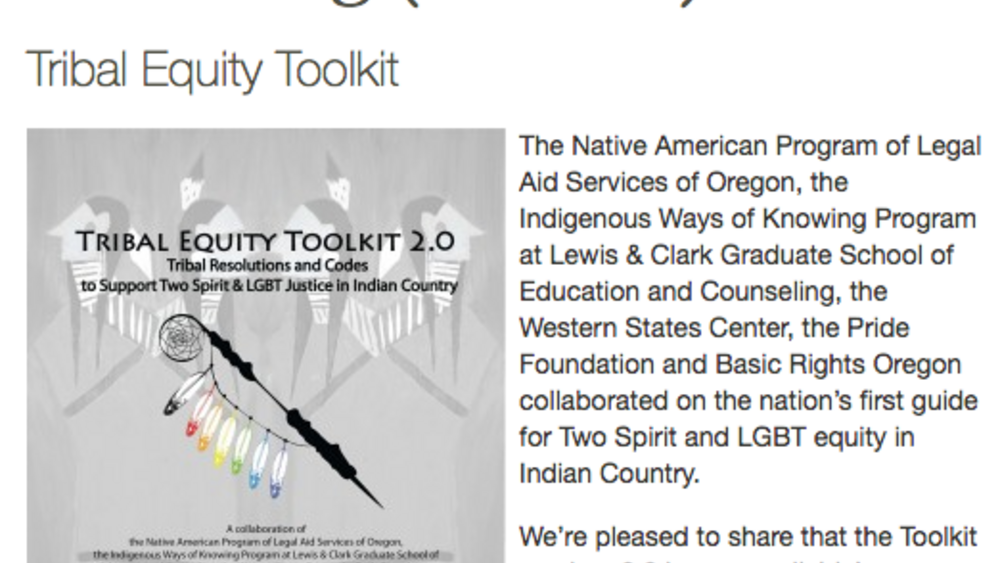
Tribal Equity Toolkit: Sample Tribal Resolutions and Codes to Support Two Spirit & LGBT Justice in Indian Country
This Toolkit has been developed to give tribal legislators a brief overview of legal and policy issues that impact the equal treatment of Two Spirit/ LGBT individuals. The Toolkit identifies areas in which existing laws discriminate against Two Spirit/ LGBT individuals, and offers sample resolution…
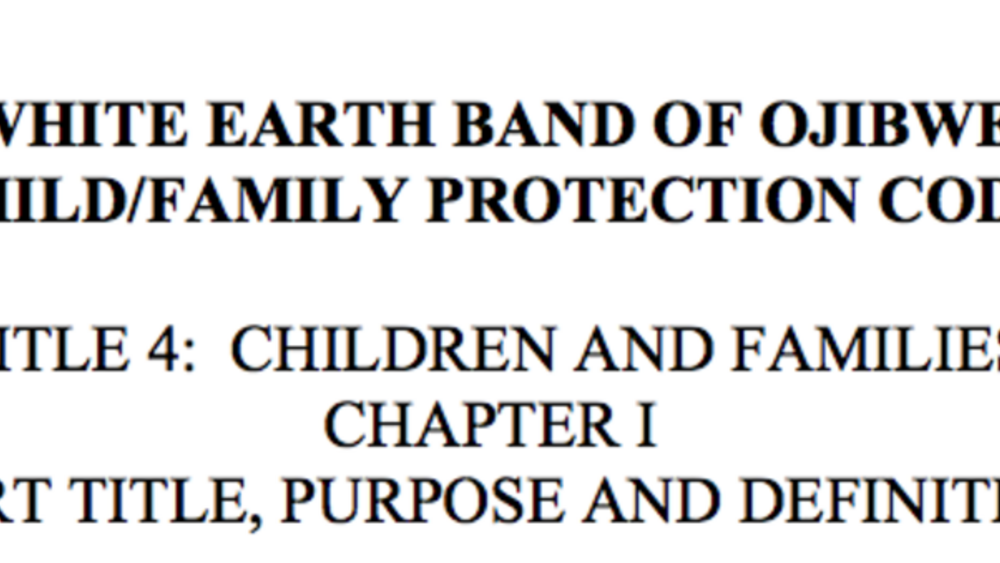
White Earth Band of Ojibwe Child/Family Protection Code
The Child/Family Protection Code, drafted by the White Earth Band of Ojibwe for the purpose of protecting children and families from events of abuse, poverty, and separation.

Customary Adoption Code, White Earth Band of Ojibwe
This code, developed by the White Earth Band of Ojibwe, allows adoption on the reservation for children but in a way that promotes cultural growth and support.
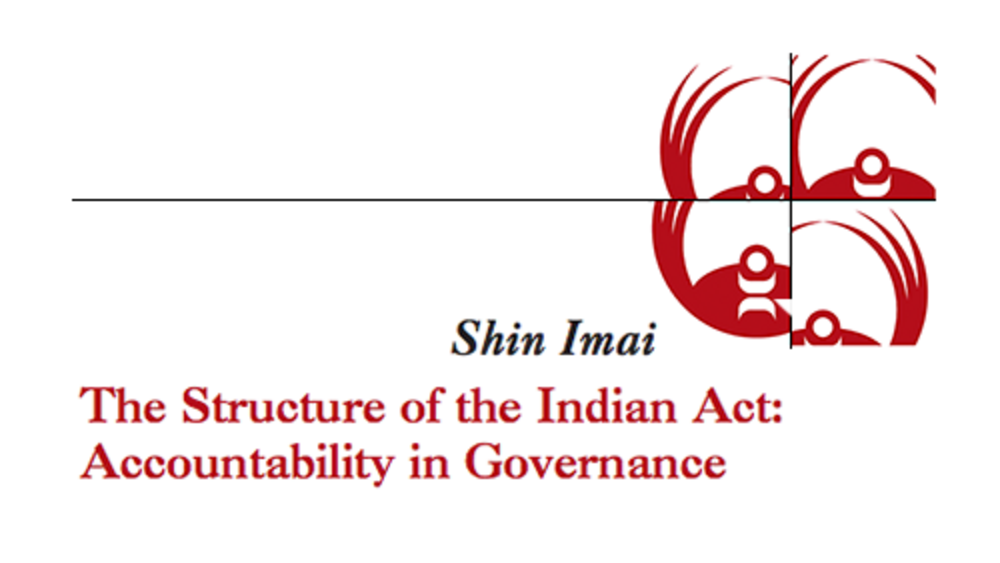
The Structure of the Indian Act: Accountability in Governance
The Indian Act has been criticized for giving the Chief and Council too little power to make their own decisions. The Royal Commission on Aboriginal Peoples counted nearly 90 provisions that give the Minister of Indian Affairs powers over the Band and Band Council. But the Indian Act…
Pagination
- First page
- …
- 10
- 11
- 12
- …
